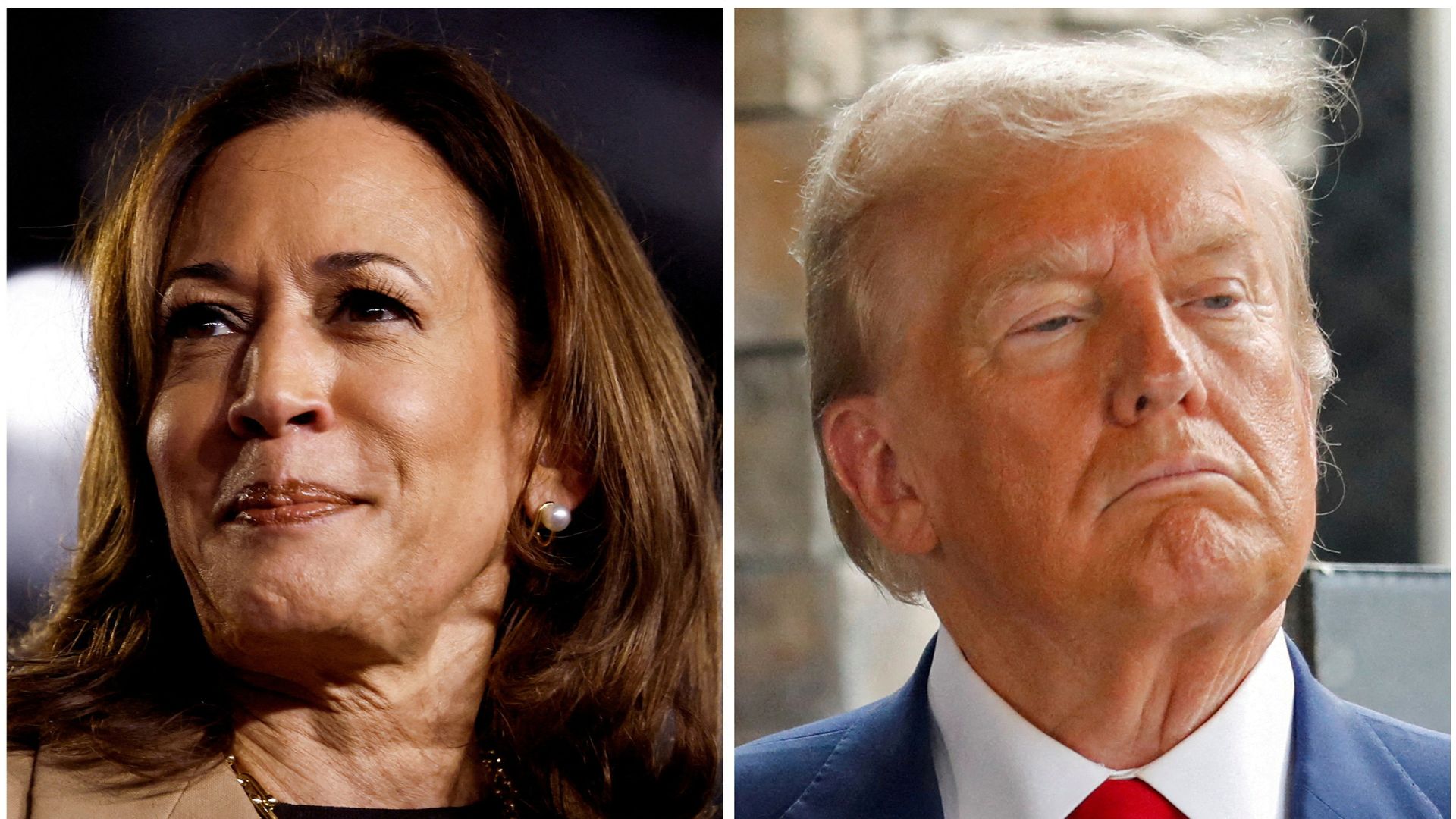
Democratic presidential nominee and U.S. Vice President Kamala Harris and Republican presidential nominee and former U.S. President Donald Trump. /Evelyn Hockstein & Octavio Jones/Reuters
The U.S. Presidential election is unusual in that it's decided by an Electoral College system rather than a simple popular vote.
In two of the past six polls a Democrat candidate has emerged victorious in the popular vote but lost out on the Presidency by virtue of not reaching the critical 270 Electoral College votes tallied from the 50 states that make up the country.
In 2000 Al Gore lost out to George W. Bush by 271 electoral votes to 266, despite winning almost 500,000 more votes nationwide. The discrepancy was even more pronounced in 2016 when Hillary Clinton lost out to Donald Trump by 304 to 227 in the college despite having received almost 2.7 million extra votes.
Political expert Professor David Dunn, from the UK's University of Birmingham, told CGTN the Electoral College system was "anachronistic" and "difficult to justify in rational terms."
He explained: "It was designed to favor the states set up back in 1787 and doesn't work so well now. It overly represents least populous states that tend to be more rural, more conservative, whiter in their demography."
Dunn continued: "By virtue of the fact that places like Montana and Nebraska and North and South Dakota have a disproportionate share of the Electoral College, their votes effectively count for more and they counteract the popular votes."
But is such a state of affairs unavoidable to some extent, and complaints merely a case of sour grapes from losing candidates?
"Some people say 'well, it's important that the smaller states have a say in the nation, why should they be discounted?' said Dunn. "But you have a situation whereby huge votes over the necessary majority in states like New York and in California and indeed in Texas and Florida are also discounted.
"So the value of a vote in one part of America is different to the value of a vote elsewhere. And that's an anachronism that's difficult to justify in rational terms."

